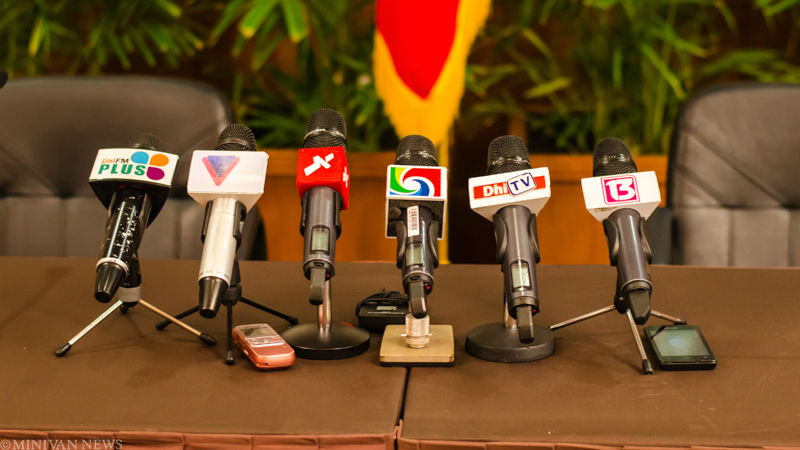Maldives accused of intimidating, silencing media
Transparency Maldives has condemned the government for proposing a bill that would merge two existing media watchdogs and “expand its sphere of state control on print and social media as well”.

07 Nov 2017, 09:00
The Maldives is tightening its grip on the media and freedom of speech by using the broadcasting regulator to silence and intimidate journalists, a leading NGO has warned, as the government pushes a draft law that could see newspapers and TV stations temporarily shut down or fined.
Transparency Maldives, in a statement Monday, condemned the government for proposing a bill that would merge two existing media watchdogs and “expand its sphere of state control on print and social media as well”.
The proposed Maldives Media Commission can order print and online outlets to make corrections, issue warnings, and impose fines of up to MVR100,000 (US$6,485) for repeated violations.
If written or broadcast content is deemed to pose a danger to Islam, national security, public order or public health, the commission can ask the police to stop publication or broadcast.
Become a member
Get full access to our archive and personalise your experience.
Already a member?
Discussion
No comments yet. Be the first to share your thoughts!
No comments yet. Be the first to join the conversation!
Join the Conversation
Sign in to share your thoughts under an alias and take part in the discussion. Independent journalism thrives on open, respectful debate — your voice matters.




